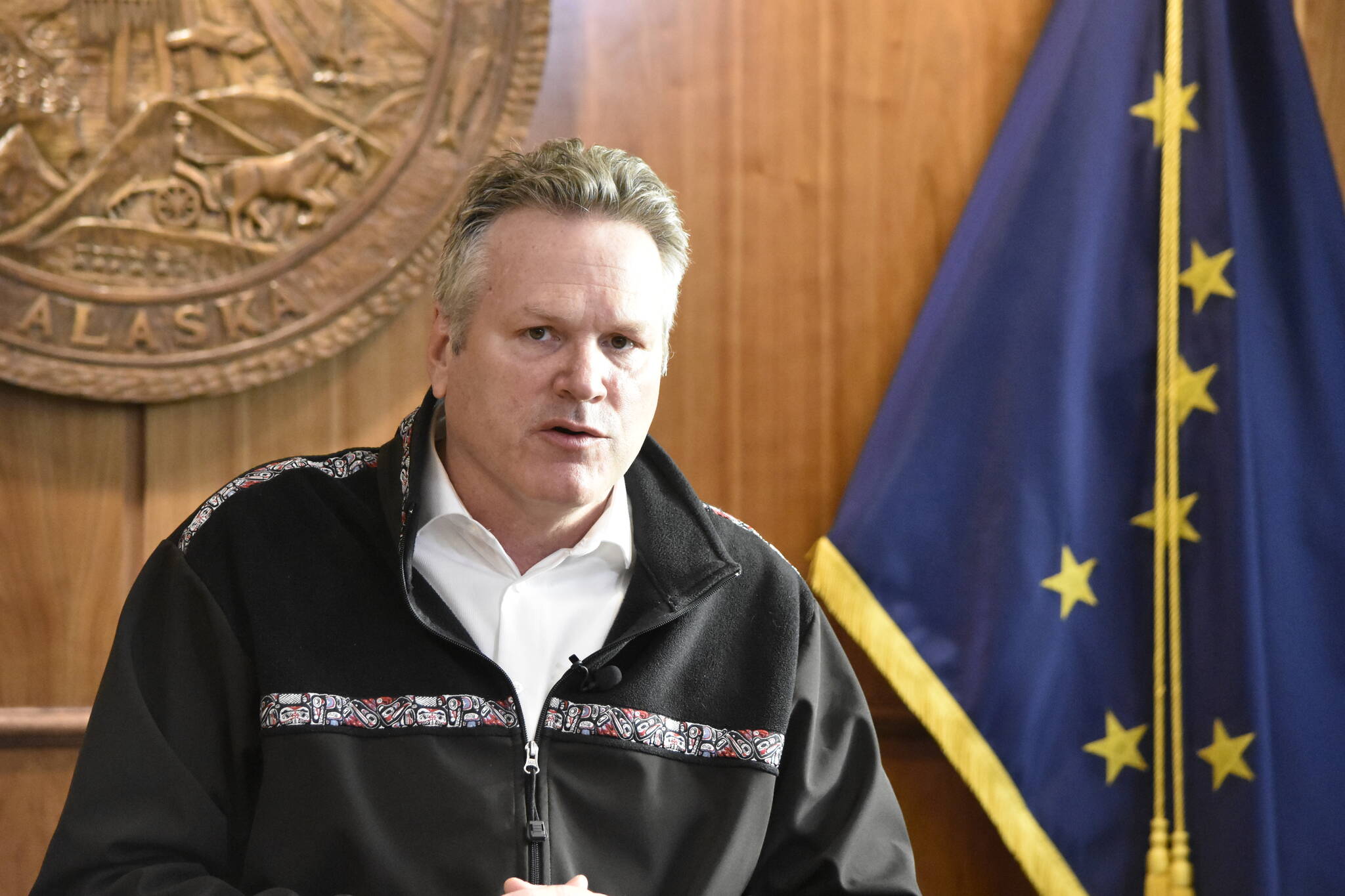With the end of the fourth special session looming, Gov. Mike Dunleavy criticized the Alaska State Legislature for the lack of action during the past few weeks.
“They concluded a long time ago they weren’t going to do anything,” Dunleavy said last Thursday. “I want this Legislature to take action to help Alaskans. We’ve introduced constitutional amendments that we believe are appropriate.”
At a news conference at the Alaska State Capitol, Dunleavy castigated lawmakers for not doing more to resolve the state’s fiscal problems. The governor said that he announced months ago there would be a special session at the end of the summer meant specifically to address the deficit issues, and had provided lawmakers with every opportunity to be productive. Dunleavy said Thursday there wouldn’t be another special session, and expressed frustration with lawmakers for holding so few meetings.
Earlier this summer, Alaska House of Representatives Speaker Louise Stutes, R-Kodiak, sent a letter to the governor asking the last special session be canceled, as many lawmakers were tired from continued sessions and had personal obligations to attend to. Stutes and Senate President Peter Micciche, R-Soldotna, criticized the session, the Associated Press reported, with Micciche calling the session, “wasteful.”
The governor and some lawmakers have argued the state should take advantage of the record-breaking performance of the Alaska Permanent Fund, which has grown substantially in the past year. But in order to pay that dividend, the Legislature would draw more than the 5% of market value the state allows itself annually under a 2017 law.
The governor and several mostly Republican lawmakers have called for the Legislature to overdraw the Permanent Fund to pay the dividends, but there’s substantial bipartisan resistance to that without a long-term fiscal plan in place. A fiscal policy working group drafted a report over the summer identifying areas where the state needs to reform its policies, but made no specific policy recommendations.
Sen. Jesse Kiehl, D-Juneau, was a member of the working group and said he was disappointed by the lack of action during the session, but not surprised.
“The working group said we needed a comprehensive solution,” said Sen. Jesse Kiehl, D-Juneau, one of the members of the working group. “The governor is just working on bigger checks; some of my colleagues are working on just taxes.”
The working group’s report recommended the state take several steps to resolve the state’s fiscal deficit and that those reforms needed to be passed in tandem. Among the recommendations in the report are a formula-based permanent fund dividend, maintaining a healthy capital budget, $25-200 million in new cuts, $500-775 million in new revenues and reforms to the state’s various spending limits.
At the start of the session, the House was able to pass a resolution allowing them more time between required floor sessions, thereby allowing lawmakers to return to their home districts and attend meetings remotely. The Senate tried to pass a similar resolution but was stymied by divisions with the Senate majority, and the body has held no regular committee meetings this session. The session officially ended Tuesday, Nov. 2.
A handful of House committee meetings were held during the four-week session, mostly allowing lawmakers to give presentations on their proposed legislation, but those bills are still not yet ready to reach the House floor. The next regular session begins Jan. 18, 2022, an election year.
At the conference, Dunleavy urged the Legislature to pay a supplemental permanent fund dividend to help Alaskans recover from the COVID-19 pandemic. On Monday, several Republican Senators sent a letter to the co-chairs of the Senate Finance Committee, Sens. Bert Stedman, R-Sitka, and Click Bishop, R-Fairbanks, asking for meetings to be held so action can be taken on legislation for a supplemental Permanent Fund Dividend. The letter asks that expeditious action be taken on Senate Bill 4001, introduced by the governor at the beginning of the special session, to spend more than $795.6 million to pay the supplemental dividend.
Stedman did not immediately return messages seeking comment.
Dunleavy said Thursday there wouldn’t be another special session, and expressed frustration with lawmakers for holding so few meetings.
Contact reporter Peter Segall at psegall@juneauempire.com. Follow him on Twitter at @SegallJnuEmpire.


